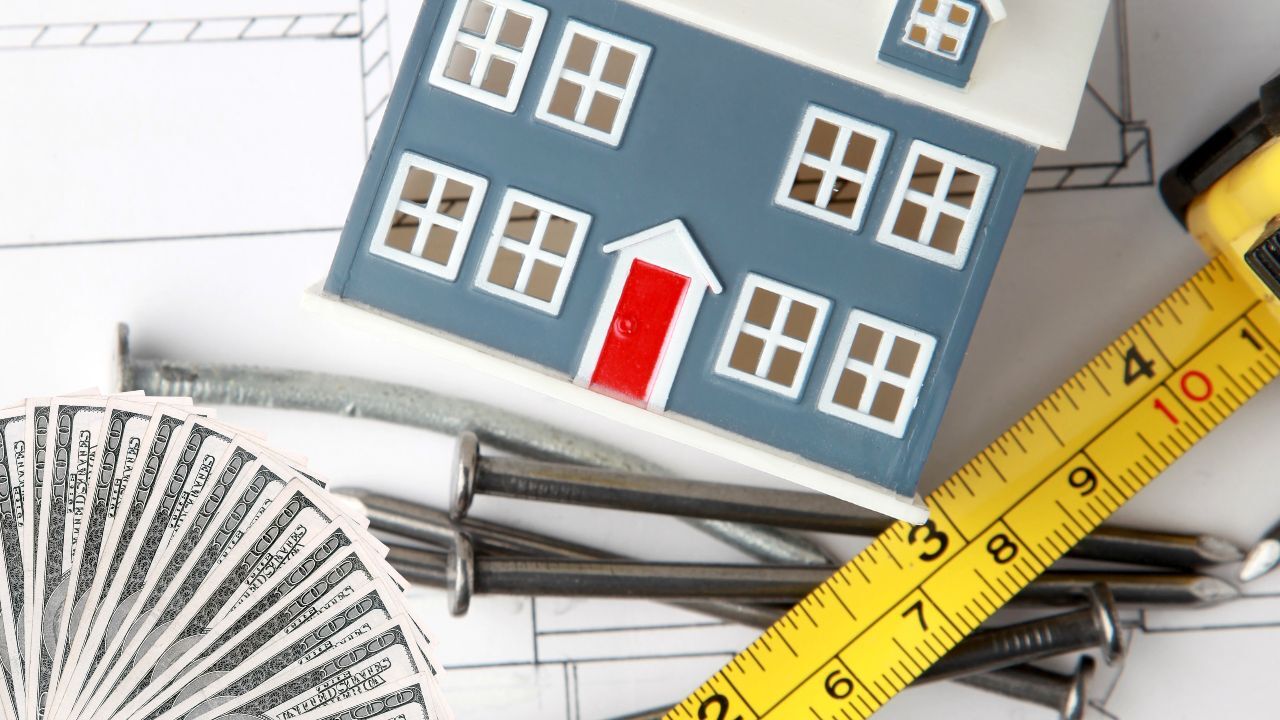Creative Ways to Finance a Home Renovation with Your Mortgage
 Renovating a home can be an exciting yet costly endeavor. Whether updating an outdated kitchen, adding more living space, or improving energy efficiency, homeowners often seek financing options that make renovations more affordable. One strategic way to fund home improvements is by leveraging your mortgage. Several loan programs and refinancing options allow homeowners to roll renovation costs into their mortgage, making upgrades more accessible and financially manageable.
Renovating a home can be an exciting yet costly endeavor. Whether updating an outdated kitchen, adding more living space, or improving energy efficiency, homeowners often seek financing options that make renovations more affordable. One strategic way to fund home improvements is by leveraging your mortgage. Several loan programs and refinancing options allow homeowners to roll renovation costs into their mortgage, making upgrades more accessible and financially manageable.
1. Renovation Loans
Renovation loans combine the cost of home improvements with the mortgage, allowing homeowners to finance both under a single loan. Some of the most popular options include:
- FHA 203(k) Loan – A government-backed loan that allows homeowners to finance renovations along with their home purchase or refinance. There are two types:
- Limited 203(k): For minor repairs up to $35,000.
- Standard 203(k): For major renovations requiring structural changes.
- Fannie Mae HomeStyle Loan – A conventional renovation loan that covers a wide range of improvements, from cosmetic updates to major structural changes.
- Freddie Mac CHOICERenovation Loan – Similar to HomeStyle, this loan allows financing for renovations, including disaster-resistant upgrades.
2. Cash-Out Refinance
A cash-out refinance allows homeowners to replace their existing mortgage with a new loan for a higher amount, withdrawing the difference as cash for renovations. This option works well when home values have increased, providing access to equity for improvements. Benefits include:
- Lower interest rates compared to personal loans or credit cards.
- Potential tax benefits if renovations increase home value.
- A single monthly payment instead of multiple financing accounts.
3. Home Equity Loan
A home equity loan, also known as a second mortgage, lets homeowners borrow a lump sum based on the equity in their home. This loan has a fixed interest rate and repayment term, making it a stable option for financing renovations.
Pros:
- Fixed monthly payments for predictable budgeting.
- Ideal for large renovation projects.
- Interest may be tax-deductible if used for home improvements.
4. Home Equity Line of Credit (HELOC)
A HELOC functions like a credit card, providing a revolving line of credit based on home equity. Homeowners can withdraw funds as needed during the draw period and repay only what they use.
Advantages of HELOC include:
- Flexible access to funds for ongoing projects.
- Lower initial payments compared to a home equity loan.
- Interest-only payment options during the draw period.
5. VA Renovation Loans
For eligible veterans and active-duty service members, a VA renovation loan allows financing for home improvements within a VA-backed mortgage. This loan covers repairs and upgrades to ensure the home meets VA property standards.
6. Energy-Efficient Mortgage (EEM)
For homeowners looking to make energy-efficient upgrades, an Energy-Efficient Mortgage (EEM) allows financing for improvements like solar panels, new insulation, and energy-efficient windows. These loans are available through FHA, VA, and conventional mortgage programs.
Choosing the Right Option
When selecting a financing option, consider:
- Project Scope: Major renovations may require a renovation loan, while minor updates might be covered with a HELOC.
- Loan Terms & Interest Rates: Compare rates to find the most cost-effective solution.
- Repayment Timeline: Choose a financing method that aligns with your long-term financial plans.
Leveraging your mortgage to finance home renovations can be a smart strategy, offering lower interest rates and more manageable payments than alternative borrowing methods. Understanding the options available can help homeowners make informed decisions that enhance both their home and financial well-being.
 Securing a mortgage can be challenging for self-employed borrowers, especially those with irregular income. Traditional lenders typically rely on W-2s and steady paychecks to assess financial stability, which can make qualifying more complex for business owners, freelancers, and gig workers. However, several mortgage options cater specifically to self-employed individuals, allowing them to secure financing based on alternative income verification methods.
Securing a mortgage can be challenging for self-employed borrowers, especially those with irregular income. Traditional lenders typically rely on W-2s and steady paychecks to assess financial stability, which can make qualifying more complex for business owners, freelancers, and gig workers. However, several mortgage options cater specifically to self-employed individuals, allowing them to secure financing based on alternative income verification methods. Buying a home is an exciting milestone, but if you are on a visa or have a green card, you may wonder how your immigration status impacts your mortgage options. The good news is that many lenders offer home loans to non-citizens, though the process may involve additional requirements. Understanding your options can help you navigate the path to homeownership with confidence.
Buying a home is an exciting milestone, but if you are on a visa or have a green card, you may wonder how your immigration status impacts your mortgage options. The good news is that many lenders offer home loans to non-citizens, though the process may involve additional requirements. Understanding your options can help you navigate the path to homeownership with confidence.